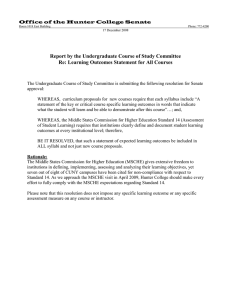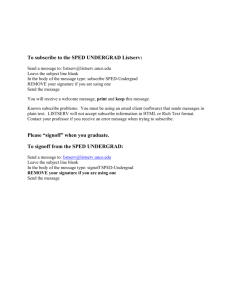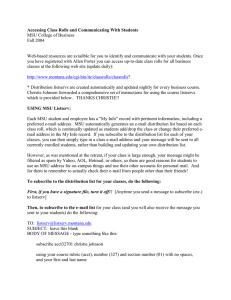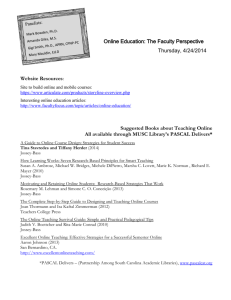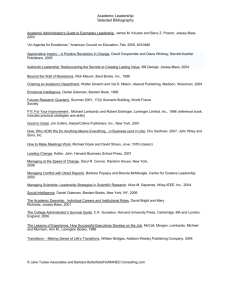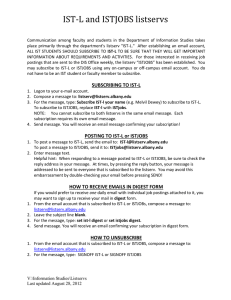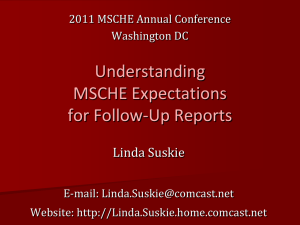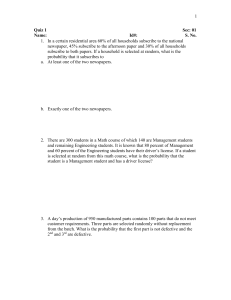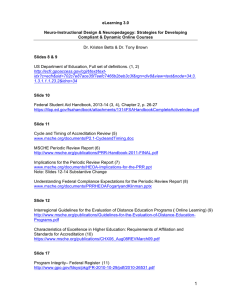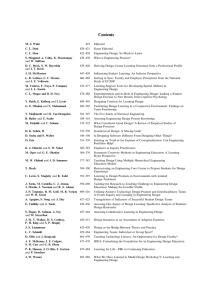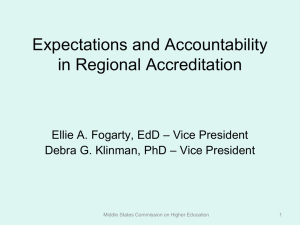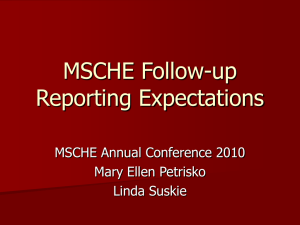Information on Assessment Models and Best Practices
advertisement
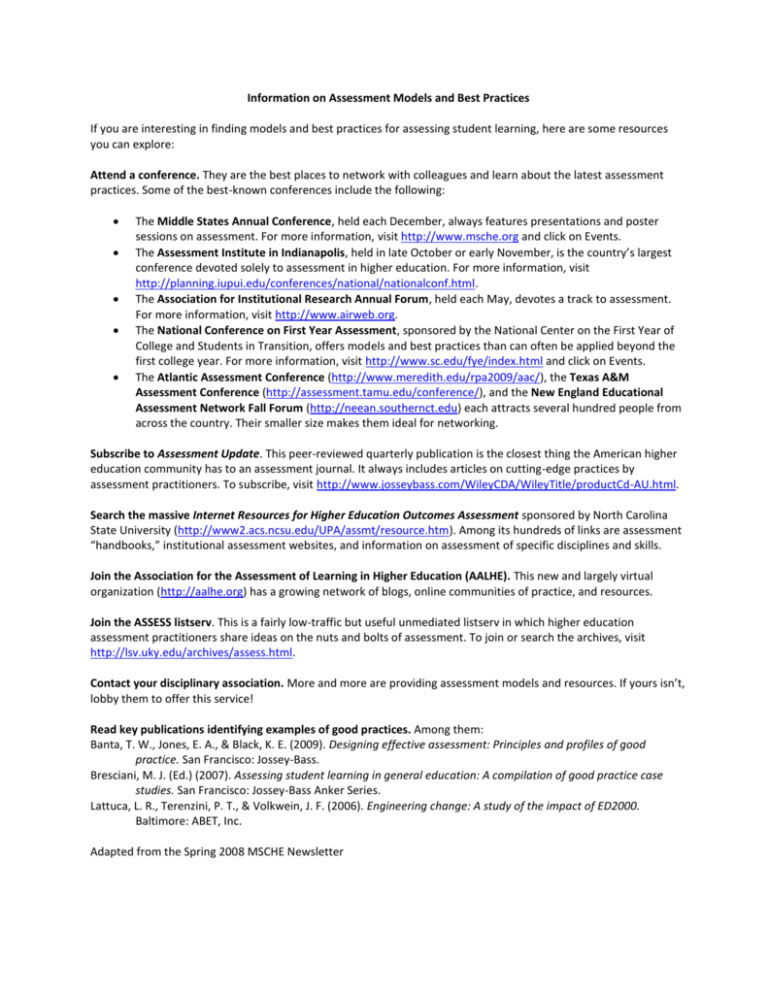
Information on Assessment Models and Best Practices If you are interesting in finding models and best practices for assessing student learning, here are some resources you can explore: Attend a conference. They are the best places to network with colleagues and learn about the latest assessment practices. Some of the best-known conferences include the following: The Middle States Annual Conference, held each December, always features presentations and poster sessions on assessment. For more information, visit http://www.msche.org and click on Events. The Assessment Institute in Indianapolis, held in late October or early November, is the country’s largest conference devoted solely to assessment in higher education. For more information, visit http://planning.iupui.edu/conferences/national/nationalconf.html. The Association for Institutional Research Annual Forum, held each May, devotes a track to assessment. For more information, visit http://www.airweb.org. The National Conference on First Year Assessment, sponsored by the National Center on the First Year of College and Students in Transition, offers models and best practices than can often be applied beyond the first college year. For more information, visit http://www.sc.edu/fye/index.html and click on Events. The Atlantic Assessment Conference (http://www.meredith.edu/rpa2009/aac/), the Texas A&M Assessment Conference (http://assessment.tamu.edu/conference/), and the New England Educational Assessment Network Fall Forum (http://neean.southernct.edu) each attracts several hundred people from across the country. Their smaller size makes them ideal for networking. Subscribe to Assessment Update. This peer-reviewed quarterly publication is the closest thing the American higher education community has to an assessment journal. It always includes articles on cutting-edge practices by assessment practitioners. To subscribe, visit http://www.josseybass.com/WileyCDA/WileyTitle/productCd-AU.html. Search the massive Internet Resources for Higher Education Outcomes Assessment sponsored by North Carolina State University (http://www2.acs.ncsu.edu/UPA/assmt/resource.htm). Among its hundreds of links are assessment “handbooks,” institutional assessment websites, and information on assessment of specific disciplines and skills. Join the Association for the Assessment of Learning in Higher Education (AALHE). This new and largely virtual organization (http://aalhe.org) has a growing network of blogs, online communities of practice, and resources. Join the ASSESS listserv. This is a fairly low-traffic but useful unmediated listserv in which higher education assessment practitioners share ideas on the nuts and bolts of assessment. To join or search the archives, visit http://lsv.uky.edu/archives/assess.html. Contact your disciplinary association. More and more are providing assessment models and resources. If yours isn’t, lobby them to offer this service! Read key publications identifying examples of good practices. Among them: Banta, T. W., Jones, E. A., & Black, K. E. (2009). Designing effective assessment: Principles and profiles of good practice. San Francisco: Jossey-Bass. Bresciani, M. J. (Ed.) (2007). Assessing student learning in general education: A compilation of good practice case studies. San Francisco: Jossey-Bass Anker Series. Lattuca, L. R., Terenzini, P. T., & Volkwein, J. F. (2006). Engineering change: A study of the impact of ED2000. Baltimore: ABET, Inc. Adapted from the Spring 2008 MSCHE Newsletter
